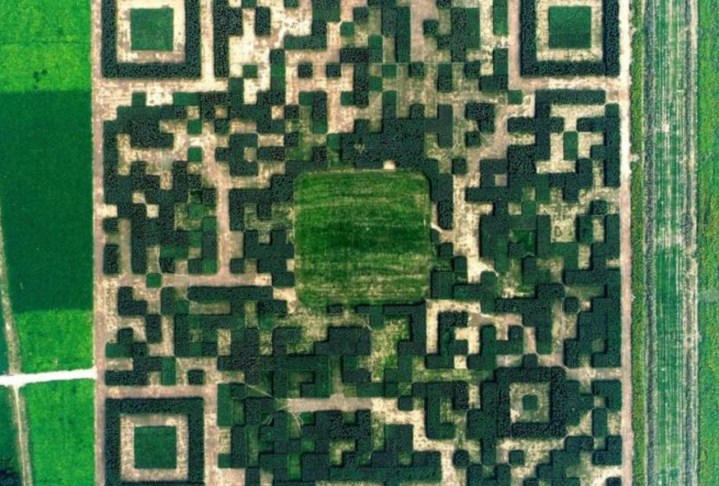
No, it hasn’t placed thousands of the codes in national newspapers and magazines that link to a website showing off what it has to offer, nor has it stuck them on billboards in the hope that a passing person will scan it with their smartphone.
Instead, officials in Xilinshui village in the city of Baoding, about 60 miles southwest of Beijing, have created a living, growing QR code consisting of around 130,000 juniper trees, the South China Morning Post reported.
Running nearly 230 meters along each side, its designers hope that folks flying overhead on their way to and from the capital will spot the giant QR code, whip out their smartphone, and scan it to find out what on earth it’s all about. And then, perhaps, pay the place a visit.
QR codes are used a lot in China, so Xilinshui officials hope that when people see its effort from up high, their automatic reaction will be to grab their phone to quickly scan it … though it does, of course, need a cloudless sky for the code to get proper exposure.
While some commentators have noted that a regular photograph of the code is hard to scan, Mashable found that a brightened image does the trick, taking you straight to Xilinshui’s official Chinese-language tourism page on WeChat, the country’s hugely popular messaging app.
It’s not clear how many window-seat airline passengers have been scanning the code, but the global publicity generated from the mere existence of the unusual code will no doubt have put a smile of satisfaction on the faces of the local officials who dreamed up the initiative.
QR codes have been around for years. Their popularity in the West has fluctuated, where they have yet to take off in the same way as they have in China. However, Apple appears to believe there’s life in the ol’ blocky black-and-white images yet, with iOS 11 — the latest version of its mobile operating system that launches on September 19 — incorporating a QR code scanner for the first time.



